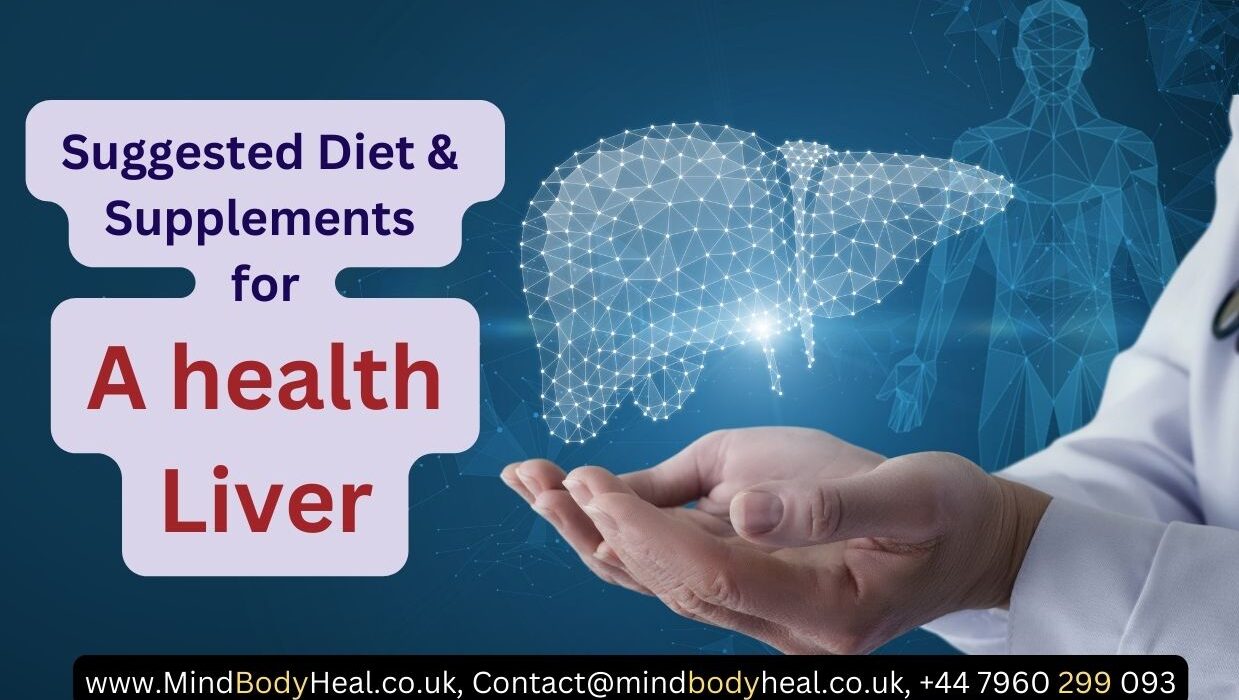Suggested diet & supplements for a healthy liver
Some of the top and best possible dietetic changes and dietary supplements for liver health etc., – Foods to take and avoid!
Consider taking them as per your specific condition, peculiar signs and symptoms.
Make sure to avoid any ingredient or food you are allergic or intolerant to – discussed in this video!
Some of the best suggested foods to fight liver problems.
Green leafy vegetables and citrus fruits, Grapes and grape seeds extract, Beans, Avocado, Oatmeal, Garlic, Carrots, Tomatoes, Walnuts, Apples and apple cider vinegar, Spinach, Chamomile, Green and mint teas, Grains, Broccoli, Cauliflower, Barberry, Cranberries, Tulsi – holy Basil, Cabbage, Seaweed, Radishes and Rose etc.
Fatty Liver Detox Drink
- Take 200 grams of honey and half teaspoon of Black seeds oil.
- Drink this mix half in the morning before breakfast and half in the evening.
- Repeat this for one month.
Liver Cleansing / Detoxification Recipes
Consume more fresh citrus juices e.g. lemon with ginger, garlic, mint and a little olive oil makes a perfect “liver flush” drink.
Liver Cleansing Tea
Ingredients:
- 4 to 5 slices of ginger
- 1 teaspoon fenugreek
- 1 teaspoon peppermint leaf
- 1 teaspoon fennel seeds
- 1 teaspoon flaxseeds
- Boil them all, strain and drink 1 – 2 cups daily for few days.
Consume more frequently.
- Radish Leaves Extract Juice
- Papaya Leaves Paste + Honey
Things to Avoid or Use with Caution for liver disorders:
- Cut down packaged, frozen, artificial, fried, greasy, cheesy and junk foods – burgers etc as a general rule of thumb.
- Restrict intake of pain killers such as acetaminophen, ibuprofen etc.
- Avoid foods with high-fructose corn syrup and added sugars such as sodas, soft drinks, candies, pastries, donuts etc.
- Cut down red meat, especially beef and pork and other sources of added sodium or salt.
- Stop drinking alcohol, beer, wine, liquor and smoking.
- Avoid highly processed foods, such as bread, rice, and pasta made from white flour.
Dietary supplements to fight liver disorders.
Antioxidants e.g. Vitamin A, Vitamin C, Vitamin E, and lipoic acid have been found very effective in liver disorders specially cirrhosis.
Vitamin A and beta-carotene supplements are thought to speed up the progression of alcoholic liver disease.
Please note that too much vitamin A can cause toxicity, so it’s essential to be aware of your daily intake.
Vitamin C is an antioxidant that can protect against potential oxidative damage from free radicals, toxic chemicals, and pollutants.
Vitamin C can help support liver health by limiting fat accumulation and preventing fatty liver disease.
Vitamin E has been studied as a possible treatment for chronic hepatitis B, indicating that the liver can function better.
Supplementing with vitamin E might help reduce liver inflammation and lower fat levels.
Vitamin K has shown promise for helping prevent liver cancer in people with cirrhosis of the liver.
It helps with blood clotting and is used to reduce the risk of bleeding in the treatment of liver disease.
Vitamin D – it’s common for people with chronic hepatitis C to have a Vitamin D deficiency because it needs to be stored in the liver and fatty tissues.
Getting enough vitamin D will help to enhance immune function, improve mood and concentration, and even fight diabetes, which is common among people with hepatitis C.
Vitamin D deficiency promotes inflammation and scarring in the liver of hepatitis C patients.
Selenium – liver uses selenium to make glutathione, which is essential for detoxification.
Omega 3 fatty acids may treat non-alcoholic fatty liver disease.
They may also help prevent fibrosis, liver cancer or cirrhosis and liver inflammation.
S-adenosylmethionine (SAMe) have value in the treatment of various liver diseases, including chronic viral hepatitis, liver cirrhosis, jaundice of pregnancy, primary biliary cirrhosis and liver toxicity caused by drugs or chemicals.
Probiotics help to support the liver because the beneficial bacterium in the gut promotes the health of the liver and allows it to function properly.
If there are too many unhealthy bacteria in the intestines, this can have a serious impact on the liver.
Probiotic also improve the immune system’s defences so that it can fight off the overgrowth of pathogens that lead to disease.
Zinc may help reduce elevated liver enzymes in people with hepatitis C because it helps to repair damaged liver cells.
It is necessary for normal liver function, and it plays a role in multiple aspects of the immune system.
Zinc is also a powerful antioxidant that boosts immune function, which is important for people fighting the hepatitis C virus.
For your particular health problem(s), or to change your medications it is strongly suggested to avoid self-medication and consult your GP / health provider or Mind & Body Holistic Health Clinic.
If you are interested in such health-related informative content, please make sure to follow our YouTube channel.






